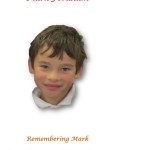The aims of this acceptable use policy is to ensure that pupils will benefit from learning opportunities offered by the school’s Internet resources in a safe and effective manner. Internet use and access is considered a school resource and privilege. Therefore, if the school AUP is not adhered to this privilege will be withdrawn and appropriate sanctions – as outlined in the AUP will be imposed.
It is envisaged that school and parent representatives will revise the AUP annually. Before signing, the AUP should be read carefully to ensure that the conditions of the use are accepted and understood.
This version of the AUP was created on 11/11/04 by the staff of Kiltiernan N.S (Ms Leech, Ms Benson, Ms O Doherty and Ms Lillis).It was updated in 2011 by Ms Leech and Ms O Doherty.
………………………………………………………………………………………………
School’ s Strategy
The school will employ a number of strategies in order to maximize learning opportunities and reduce risks associated with the internet. These strategies are as follows:
General
• Internet sessions will always be supervised by a teacher.
• Filtering software and/or equivalent will be used in order to minimize the risk of exposure to inappropriate material.-Fortiguard webfiltering.
• The school will regularly monitor pupils’ internet usage.
• Students and teachers will be provided with training in the areas of internet safety.
• Uploading and downloading of non-approved software will not be permitted.
• Virus protection software will be used and updated on a regular basis.-AVG
anti-virus software.
• The use of personal floppy disks, CD-ROMS/USB keys in school requires a
teacher’s permission.
• Students will observe good “netiquette” (i.e. etiquette on the internet) at all
times and will not undertake any actions that may bring the school into disrepute.
World Wide Web
• Students will not visit internet sites that contain obscene, illegal, hateful or otherwise objectionable materials.
• Students will use the internet for educational purposes only.
• Students will be familiar with copyright issues relating to online learning.
• Students will never disclose or publicise personal information.
• Students will be made aware that any usage, including distribution
or receiving information, school related or personal, may be monitored for unusual activity, security and/or network management reasons.
• Students will use approved class email accounts under supervision by or permission from a teacher.
• Students will not send or receive any material that is illegal, obscene, and defamatory or that is intended to annoy or intimidate another person.
• Students will not reveal their own or other people’s details, such as addresses
or telephone numbers or pictures.
• Students will never arrange a face- to- face meeting with someone they only know through emails or the internet.
• Students will note that sending and receiving email attachments is subject to
permission from their teacher.
Internet Chat
• Students will only have access to chat rooms, discussion forums or other electronic communication forums that have been approved by the school.
• Chat rooms, discussion forums and other electronic communication forums
will only be used for educational purposes and will always be supervised.
• Usernames will be used to avoid disclosure of identity.
• Face –to –face meetings with someone organized via internet chat will be forbidden.
School Website
• Pupils will be given the opportunity to publish projects, artwork or school work on the World Wide Web.
• The publication of student work will be co- coordinated by a teacher.
• Pupils work will appear in an educational context on Web pages with a copyright notice prohibiting the copy of such work without express written permission.
• Digital photographs, audio or video clips of individual students will not be published on the school website. Instead photographs, audio and video clips
will focus on group activities. Video clips may be password protected.
• Permission is sought from parents for the use of digital photos in project work.
• Personal pupil information including home address and contact details will be omitted from school web pages.
• Pupils will continue to own the copyright on any work published.
Legislation
The school will provide information on the following legislation relating to the use of the internet which teachers, students and parents should familiarize themselves with:
• Data Protection (Amendment) Act 2003
• Child Trafficking and Pornography Act 1998
• Interception Act 1993
• Video Recordings Act 1989
• The Data Protection Act 1988
Support Structures
The school will inform students and parents of key support structures and organizations that deal with illegal material and harmful use of the internet.
Sanctions
Misuse of the internet may result in disciplinary action, including written warnings, withdrawal of access privileges and, in extreme cases, suspension or expulsion. The school also reserves the right to report any illegal activities to the appropriate authorities.
Permission Form
Please click HERE to download the school Internet Acceptable Use Policy permission form, sign and return this permission form to the Principal.

